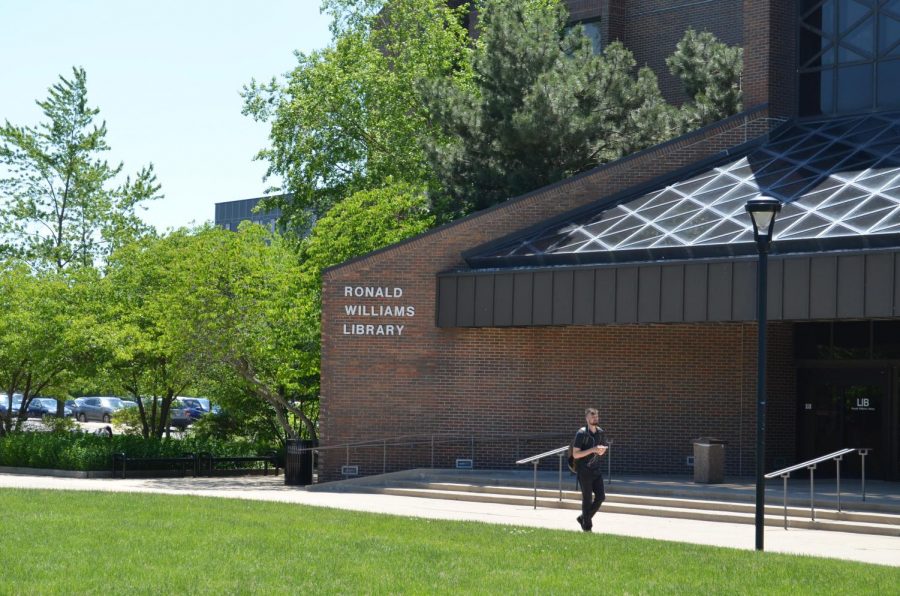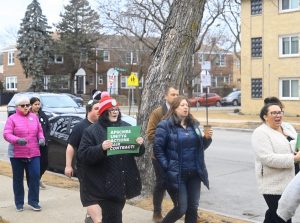Differing Perspectives on Political Realignment at NEIU
Student walking across Ronald Williams Library.
September 11, 2018
Four people with varying political perspectives sit at the same table. In today’s day and age, four people with varying political perspectives sitting at the same table as each other sounds like a set up for disaster, but NEIU’s event, “Differing Perspectives,” on Aug. 30 proved that discussions of different political beliefs can be informative and important to have.
The organized discussion was part of the Between Past & Future event series hosted at NEIU’s Ronald Williams Library in room 022. Similar to previous Between Past & Future events, the “Differing Perspectives” discussion gave experienced panelists an opportunity to discuss the changes within the political parties and their belief platforms.
The night was hosted by Ed Remus, the social sciences librarian at NEIU, where he gave four panelists the opportunity to speak about their thoughts on the changes in the Republican and Democratic parties.
Elizabeth Tandy Shermer, a progressive historian and teacher at Loyola University Chicago; Daniel McCarthy, the editor of the news media company Modern Age: A Conservative Review; Deirdre McCloskey, a libertarian economist and teacher at the University of Illinois at Chicago; and Marco Torres, a social historian were the four panelists.
Each panelist had around 15 minutes to present their opening remarks and thoughts on the direction the parties are going. Shermer filled their remarks with elements of historical information, others spoke on controversial ideas. Torres shared his disagreement that comes from the common belief that the American people “didn’t deserve Barack Obama.”
McCloskey shared that she had changed her political view many times throughout her lifetime based on ever-changing perspectives she has held in life; a common experience that many students have had.
NEIU student Daniel Roldan said that the shifting of political parties is “seen constantly in history as voters will change political support if they feel unrepresented or if they feel the government is not doing enough.”
The panelists all mentioned that history is an effective way of looking towards the future. McCarthy mentioned that many people, particularly liberals, make the mistake of “imagining a blank slate” when looking at how the government can make its changes.
As the long line formed for questions from the audience, everyone attending the event was either engaged, excited, or impatient to continue the conversation. The discussion was thought-provoking for the panelists, students and staff.
It gave room for the audience to ask questions about the history and future of politics. Politics is a part of the human experience, and panelist Shermer strengthen that idea by saying that when people decide their own personal political inclination, they must first and foremost ask themselves, “what are the three things we believe in?”











Edward Remus • Sep 19, 2018 at 11:27 am
The panel discussion described above was recorded by CAN TV and can be viewed on YouTube here: https://youtu.be/T13Nt8gNVQI